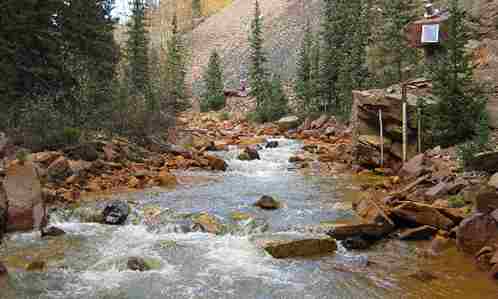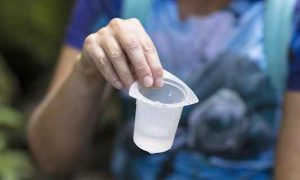Water Resource Engineer
Who Is A Water Resource Engineer?
Water resource engineers are responsible for ensuring that treated water is safe for consumption by a community or citizens residing in a locality. As a water resource engineer, your job would be to monitor the treatment process at every stage, collect samples for monitoring and testing, perform evaluations and analyse the groundwater or surface water to adhere to local body compliances. Even if you’re a civil engineer, mechanical engineer or chemical engineer, you could take up this profession. As a water resource engineer, you would mostly work at a water treatment plant to monitor and maintain the quality of treated water. You would need a sound understanding of chemistry to monitor, evaluate, analyse and treat water at every step of the process. You might even have to mix the right coagulants or dose of disinfectants in the required quantities as per the groundwater or surface water composition.
For instance, you may be assigned to investigate the grievances of a particular community complaining about contamination in their tap-water. You would conduct your tests to identify the source and location of the contamination and get it resolved.
Roles & Responsibilities
Monitoring various parameters of water like pH (scale to measure the acidity or alkalinity of a solution), conductivity, dissolved heavy metals, hardness (total dissolved solids), turbidity, presence of bacterial content, etc. You may have to use different instruments for each parameter. For example, a TDS meter measures the hardness of the water.
Calibrating various types of equipment that you use regularly and verifying collected data. It is critical that you check the data with a standard device, generally kept in the laboratory, so you are entirely sure about the accuracy of your instruments.
Organising a schedule for collecting water samples at set frequencies and analysing them at the collection point or in your laboratory. For example, you may have to go to the freshwater lake from which the city households fetch water to collect samples every week.
Conducting standard laboratory procedures. You will test the microbiological and chemical profiles of collected water samples, and update databases based on the results.
Take the Mentoria career assessment, to find out how well-suited you are as a Water Resource Engineer.
Discover your Ideal future
Get expert guidance and mentorship towards your perfect fit.
What Skills Will I Need To Have To Do This Job Well?
As exciting as this sounds, there are some things you’ll need to do the job right:
PRACTICAL FIELD WORK
You will not be restricted to an indoor work environment. You will visit sites to collect water samples and other data. For example, you may have to enter a water body with waist-level water and perform tests as well as collect samples as part of the job.
ANALYTICAL SKILLS
You will have to deal with a lot of raw data that you get by performing various tests on the water sample. Critical thinking will help you analyse the data and draw insights from it.
STATISTICAL APTITUDE
Since there is a lot of data involved, you would need statistical methods to make sense of it. Although you might use specialised software for the same, you must have an aptitude for mathematics and statistics to do this job well.
REPORTING AND COMMUNICATION SKILLS
You would have to prepare elaborate reports to present your findings to municipal corporations, ministries or other government bodies to take the necessary actions. The state manages water in India, so the centre forms a majority of laws and the states impliments their plans accordingly.
What Will My Workplace Look Like?
Your work life would depend heavily on a lot of factors like your designation, level of involvement in the job, the scale of your job and whether you are working in a government or private organisation.
You will spend your time in the office as well as in the laboratory and on-site for fieldwork. If an emergency like a water-borne epidemic on a local level occurs, you may have to extend your work hours. Travelling is often an integral part of this job as you will visit the water bodies to collect samples for testing. Besides, you might have to attend seminars and other events regularly to present your findings or merely enhance your knowledge and skills.
Freelancers are rare in this field, but with several years of experience, you can work as an individual consultant for major corporations or government bodies on water-quality related topics.
What Is My Scope For Career Growth As A Water Quality Engineer?
You would start as a junior water resource engineer, chemist or a research assistant in the beginning. Your responsibilities would be more field-based, and you would need to travel to local sites for collecting samples. Then you would have to run tests on these samples in the laboratory too.
As you grow in experience and gain additional qualifications and skills, your work might be limited to analysing test reports that your team makes. If you get promoted to the position of a senior water resource engineer, you will be responsible for maintaining the water quality levels at a higher geographical level.
Thinking of a career as a Water Resource Engineer? Take the Mentoria assessment & talk to our career counsellors to get personalized step-by-step guidance for your future career path.
How Much Will I Get Paid?
The exact salary figure would depend on many factors like the sector of your work (government or private), your location, skill set and specialisation. But, we can give you a general idea.
A water resource engineer earns around INR 2,50,000 to 6,00,000 as a beginner annually. At a senior level, you can make approximately between INR 6,00,000 to 10,00,000.
Okay, I'm sold. This is amazing 5-Step Career Roadmap

STEP 1: Class XI-XII/ Junior College
Choose the science stream at this level and take up chemistry as a subject. Scoring 60% and above in subjects related to science will help you immensely.

STEP 2: Entrance Exams
You will have to take the relevant entrance exams for engineering. Depending on the college you aspire to study at, you might need to clear their respective entrance examinations as well. For example, admission to the Indian Institutes of Technologies is generally through a Joint Entrance Exam (JEE).

STEP 3: Graduation
Once you clear the entrance exam of a particular institute, you need to enrol for a four-year degree in Chemical Engineering or Environmental Engineering and take water quality management as one of your subjects.

STEP 4: Internship
It is highly recommended that you do an internship to get a first-hand experience in this field. If you do an internship while pursuing graduation, it will give you a practical demo of how your theoretical knowledge can be applied. You will understand the subjects you need to focus on.

STEP 5: Land a Job
Once you complete your degree programme and your internship, you can participate in the placement sessions at your college or apply off-campus at related companies.
Congratulations, you are now officially a Water Resource Engineer!
Sign Up for Mentoria - India’s Most Reliable Career Discovery Platform
Mentoria promises to handhold you during your career discovery journey - from the time you sign up until you get into a career you love.
Discover your Ideal future
Get expert guidance and mentorship towards your perfect fit.


